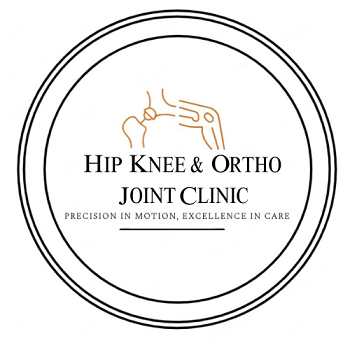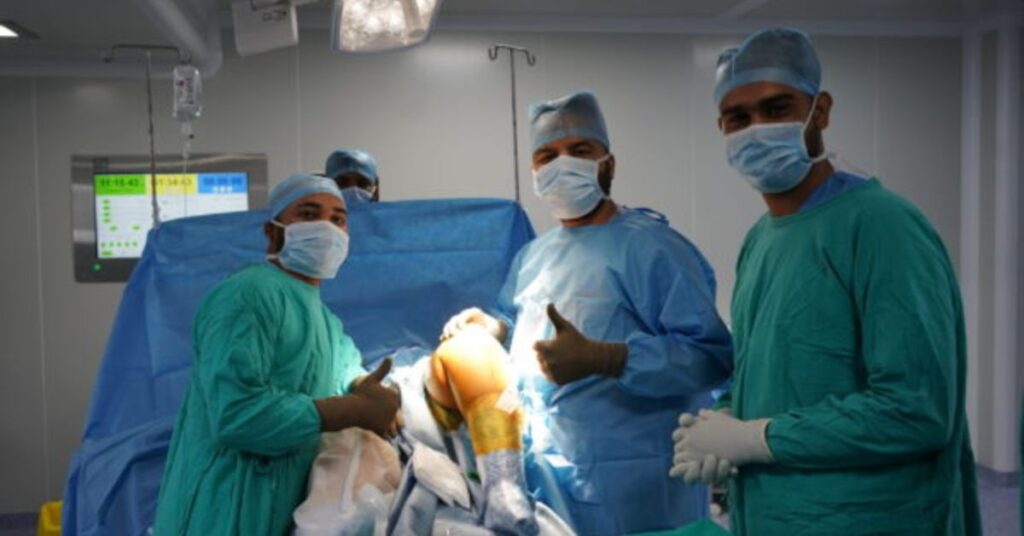Knee Replacement
Knee pain is one of the most frequent causes of the visits to an orthopaedic clinic. To some people, it causes occasional stiffness when one has to stand too long and to others, it can be painful and restricts the ability to do even the simplest daily activities such as walking, climbing stairs or other physical tasks. In several instances, the cause factor is knee arthritis – a condition that occurs when the cushioning of the knee joint (wear and tear) wears out.
Fortunately, contemporary medical practice has solutions on all the levels: lifestyle alteration, injection, and up to the heavy surgical procedures like a knee replacement surgery. This article will guide you through the process step by step with regard to finding knee arthritis treatment or knee replacement in Indore.
What is Arthritis of the Knee?
Arthritis is a disease in which a joint becomes painful, stiffand inflamed. Knee It is the largest joint in the body as well as one of the most commonly used, thus is highly susceptible to arthritis.
The most prevalent is osteoarthritis, which develops as a result of cartilage (the smooth cushion covering the ends of bones) wear and tear as a person ages.
Others can include:
- Rheumatoid arthritis
- Post-traumatic arthritis
Knee Arthritis Stages
Arthritis does not strike in an instance. It creeps slowly, and it is important to recognize the stages as a way of deciding which treatment course to use.
Stage 1- Preliminary Adjustments
Cartilage wear and tear is minor.
Transient stiffness, or discomfort following activity
Unknown to the X-rays, they usually look normal.
Stage 2 -Mild Arthritis
Loss of joint space starts to occur
Pain is more common, after walking long distances or going up stairs.
The swelling and morning stiffness may occur.
Stage ricin weight III – moderate arthritis
Large cartilage damage
The pain interrupts day-to-day activities including walking and sitting cross legs.
During movements there may be a cracking or grinding sound (crepitus).
Stage 4- Severe Arthritis
Nearly all the cartilages being worn away, the ends of the bones would rub together.
Pain does not rest or sleep, it is continuous.
Occasionally visible deformity of the knee.
Surgery at this stage turns out to be very effective.
Changes To Your Lifestyle To Support Your Knee
Arthritis Management Injection Choices
When switching your lifestyle and taking medications do not relieve knee pain, arthritis injections may help. These procedures are less invasive and they can postpone surgery.
1. Corticosteroid injections
Help inflammation and pain.
Provide short term relief (weeks to months).
Flare-up is typically used with this.
2. Hyaluronic acid shot (Viscosupplementation)
Provide the joint with lubrication, which cushion between the bones.
Decrease the stiffness and enhance mobility.
3. PRP(Platelet-Rich Plasma)therapy
Uses concentrated platelets of the person himself.
Enhances healing and anti-inflammatory.
Becoming popular with younger people with early arthritis.
4. Stem cell injectors
Still being researched, but is posted to have regenerative effects in specific cases.
Although injections do not offer a lasting solution, they offer pain relief and add quality of life.
When Surgery is Required??
Surgery is necessary when the woman loses control of the urine sometimes with concomitant voiding up to or over the gills. Spasticity of the neck muscles is a definite indication of the need of surgery. The urge to empty the bladder,with the resultant loss of tendency to hold closeness of the bladder emptying during voluntary urge, as well as involuntary loss of closely related processes are useful indications of the need of surgery.The situation when the woman is unable to empty the bladder of its contents is an indication that surgery
It resorts to surgery in case the arthritis has reached an advanced stage and the other methods can no longer help. You may require surgery when you have signs such as
Severe knee pain, which affects the quality of life.
Difficulty in walking, climbing stairs or even taking a sleep comfortably.
Hurts during the night.
The x-rays depict severe destruction of the joint.
Once in this stage, knee replacement operation becomes the best and lasting alternative.
Knee Replace Surgery Expected Estimates
Knee replacement surgery (also known as knee arthroplasty) replaces the destroyed joint surfaces with artificial parts that are made of plastic and metal. This aids to regain fluid movement, reduce pain, and gain flexibility.
Types of Knee Post-Op
- Total Knee Replacement (TKR) -the complete replacement of the knee. Most likely choice as a treatment to advanced arthritis.
- Partial Knee Replacement -Only the damaged part of the knee is replaced, natural bone and ligaments are maintained. Suitable with patients who have a limited arthritis.
- Robotic-Assisted Knee Replacement- This is done using advanced robotic systems to perform with greater precision, alignment, and results in the long-term.
Advantages of Surgery of Knee replacement
There has been a strong reduction in pain.
An increase in the ability to move around and functioning in day-to-day activities.
Treatment of deformities.
Higher quality of life, which helps patients resume their hobbies and active lifestyle.
Knee arthritis can start off with minor stiffness, but when left unattended turn out to be debilitating. The positive side is that non-surgical and surgical treatment of knee pain is quite possible according to the level of the condition.
Being in pain is something common, but you should not hesitate to address the problem when you experience pain on a regular basis. Early use of an expert can change everything. In the case of people in Central India, an orthopaedic surgeon in Indore at City nursing Home should give the right advice at the right moment.

